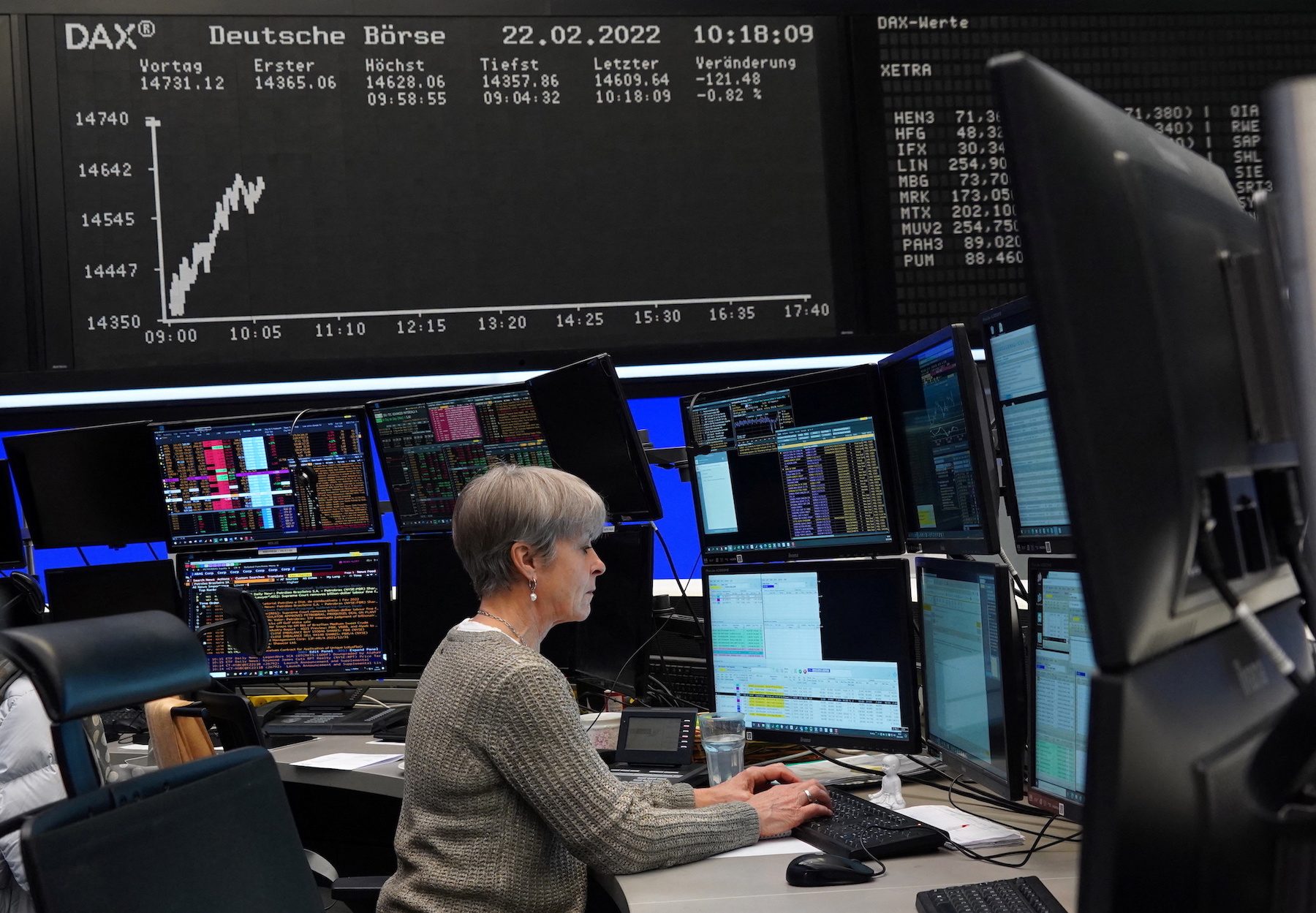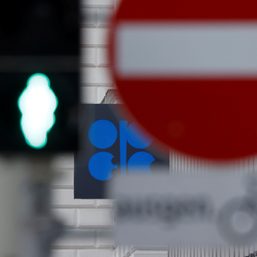SUMMARY
This is AI generated summarization, which may have errors. For context, always refer to the full article.

NEW YORK, USA – Crude oil futures on Tuesday, February 22, reached their highest levels since 2014 on supply concerns and stocks sold off in a volatile session as investors eyed international responses after Russia sent troops into parts of Ukraine.
Markets were jittery a day after Russia’s move but the safe-haven US dollar was slightly lower against major currencies while gold, another safety bet, was also in the red.
US President Joe Biden announced the first sanctions against Russia for what he called Moscow’s beginning of an invasion of Ukraine, and he promised steeper punishments ahead if Russia continued its aggression.
While the S&P 500 confirmed it is in a correction by closing more than 10% under its record high, it still finished above its session low, reached before Biden spoke.
“When Biden came out and set sanctions they weren’t maybe as severe as people were fearing,” said Robert Pavlik, senior portfolio manager at Dakota Wealth in Fairfield, Connecticut.
And while investors were jittery, Pavlik said that “people are trying to sit with what they own if they’ve adjusted their portfolio ahead of all this. For those that haven’t, it’s a little late in the game.”
The European Union also agreed on new sanctions against Russia on Tuesday while German Chancellor Olaf Scholz halted the new Nord Stream 2 gas pipeline from Russia and Britain took action against Russian banks.
“The world is still hoping this is somewhat limited and doesn’t really spread across Europe and Ukraine,” said Peter Tuz, president of Chase Investment Counsel in Charlottesville, Virginia, noting that riskier assets were selling off. “Nobody’s rushing to buy.”
Brent crude futures settled up 1.5% at $96.84 per barrel after earlier topping $99 for the highest level since September 2014, reflecting fears that Russia’s energy exports could be disrupted by any conflict. US West Texas Intermediate crude settled up 1.4% at $92.35 per barrel after earlier hitting $96, its highest level since August 2014.
The Dow Jones Industrial Average closed down 482.57 points, or 1.42%, at 33,596.61, while the S&P 500 lost 44.11 points, or 1.01%, falling to 4,304.76, and the Nasdaq Composite dropped 166.55 points, or 1.23%, to 13,381.52.
The MSCI world equity index, which tracks shares in 50 countries, shed 0.9% after earlier falling 1.5%, with the index at levels not seen since January 28.
Spot gold fell 0.4% at $1,898.77 after earlier climbing to its highest level since June.
Yields on US Treasuries edged higher after Biden announced new sanctions on Russia in retaliation for Moscow’s dispatch of troops into what it recognized as two breakaway regions of Ukraine, but the bond market reaction was muted overall.
Benchmark 10-year notes last fell 2/32 in price to yield 1.9372%, up from 1.93% in the previous session. Yields move in the opposite direction to bond prices.
The dollar index fell 0.047%, with the euro up 0.14% to $1.1326. The Japanese yen weakened 0.29% versus the greenback at 115.06 per dollar, while sterling was last trading at $1.3581, down 0.13% on the day.
The Russian rouble slid to 80.9275 against the US dollar in earlier trading, touching its lowest level against the greenback since November 2020, before reversing course. The dollar was last down 1.7% against the rouble.
Russian dollar bonds extended their losses a little after the US sanctions were announced, with longer-dated issues slipping to record lows trading in the mid-90s, data showed.
The premium demanded by investors to hold Russian debt over safe-have US Treasuries blew out to 329 basis points, the widest since the COVID-19 pandemic market rout in spring 2020. – Rappler.com
Add a comment
How does this make you feel?






There are no comments yet. Add your comment to start the conversation.